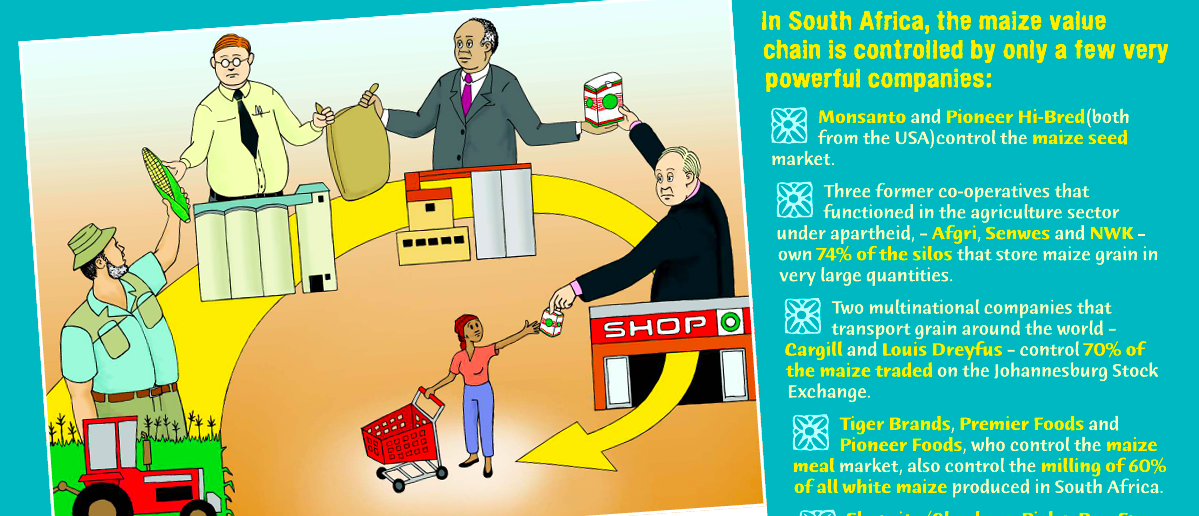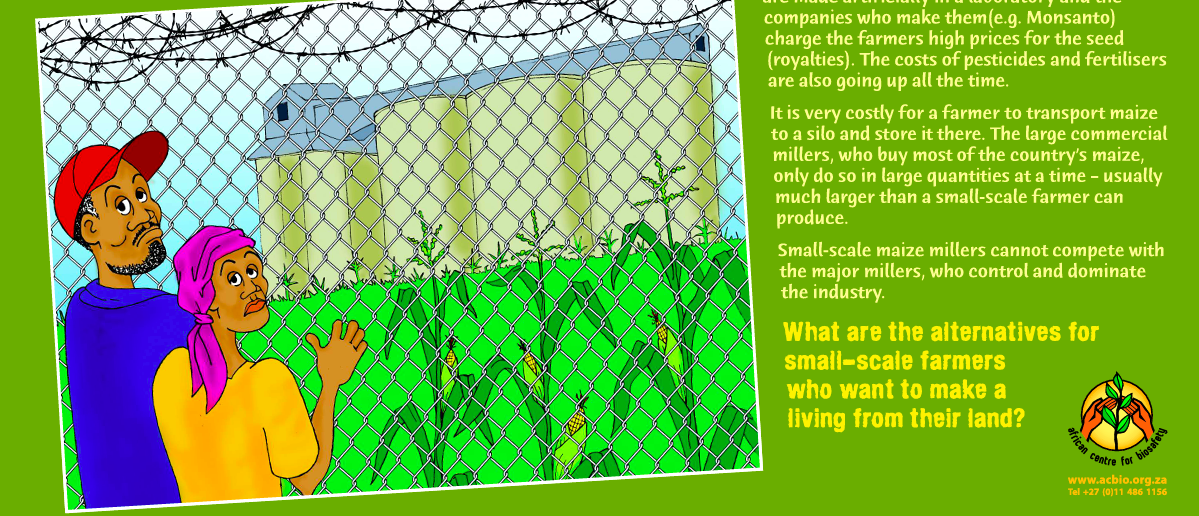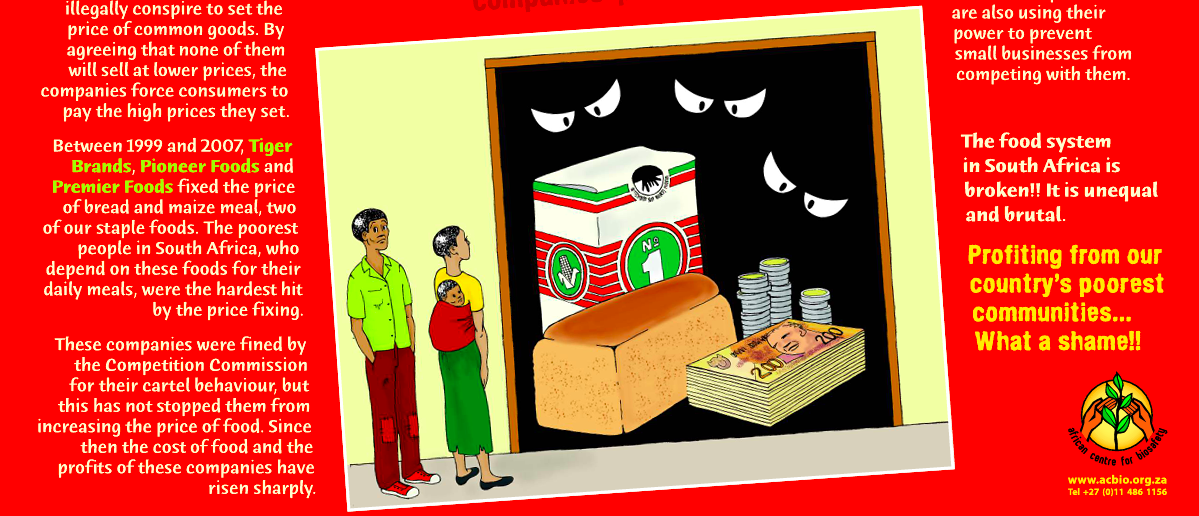Latest Resources

5 May 2017
Green Revolution Factsheet 6: The effects of synthetic fertilisers on nutrition
Synthetic fertilisers may increase yields for farmers but do not enhance the nutritional quality of the food produced. Factsheet 6 looks at the effects of synthetic fertilisers on nutrition. Chichewa | English | Nyanja | Portuguese | Sesotho | Setswana | Shona | Siswati | Swahili | Xhosa To read factsheet 7 click here.

5 May 2017
Green Revolution Factsheet 5: Impacts of synthetic fertilisers on the environment
Part 5 in this 8-part factsheet series unpacks the long term impact of synthetic fertilisers on the environment. Chichewa | English | Nyanja | Portuguese | Sesotho | Setswana | Shona | Siswati | Swahili | Xhosa For factsheet 6 click here.

5 May 2017
Green Revolution Factsheet 4: What are synthetic fertilisers?
There are two kinds of fertilisers, natural and synthetic. The fourth factsheet in this series takes a closer look at synthetic fertilisers. Chichewa | English | Nyanja | Portuguese | Sesotho | Setswana | Shona | Siswati | Swahili | Xhosa For the next factsheet in the series, click here.

5 May 2017
Green Revolution Factsheet 3: Farmers have alternatives
The third factsheet in this 8-part series looks at the alternatives to industrial monoculture. Chichewa | English | Nyanja | Portuguese | Sesotho | Setswana | Shona | Siswati | Swahili | For the next factsheet in the series, click here.

5 May 2017
Green Revolution Factsheet 2: What is wrong with the Green Revolution
The Green Revolution is the introduction of high-yielding seed varieties and modern farming techniques. Part 2 of this 8-part factsheet series looks at what is wrong with the Green Revolution on the African continent. Chichewa | English | Nyanja | Portuguese | Sesotho | Setswana | Shona | Siswati | Swahili | Xhosa Click here […]

5 May 2017
Green Revolution Factsheet 1: What is the Green Revolution
The Green Revolution is the introduction of high-yielding seed varieties and modern farming techniques. Our 8-part factsheet series explores the impact of these developments on food production and farming. Chichewa | English | Nyanja | Portuguese | Sesotho | Setswana | Shona | Siswati | Swahili | Xhosa For the next factsheet click here. Download […]

3 December 2014
Who owns our food systems: Who owns our maize?
It is shocking that in South Africa a handful of very powerful cooperations control how and what we eat! Download this factsheet: English | Afrikaans | Sotho | Zulu To read the rest of the fact sheets in this series, click here.

3 December 2014
Who owns our food systems: Small-scale farmers and the maize value chain
Small-scale maize millers cannot compete with the major millers who control and dominate the industry. What are the alternatives for small-scale farmers who want to make a living from their land? Download this factsheet: English | Afrikaans | Sotho | Zulu To read the rest of the fact sheets in this series, click here.

3 December 2014
Who owns our food systems: Fixing the price of food
Between 1999 and 2007, Tiger Brands, Pioneer Foods and Premier Foods fixed the price of bread and maize meal, two of our staple foods. The poorest people in South Africa, who depend on these foods for their daily meals, were the hardest hit by the price fixing. Download this factsheet: English | Afrikaans | Sotho […]

3 December 2014
Who owns our food systems: GM pap — No choice for South Africans
Labelling does not give South Africans true choice; the only maize available on the market is GM. This is food fascism! Download this factsheet: English | Afrikaans | Sotho | Zulu To read the rest of the fact sheets in this series, click here.
